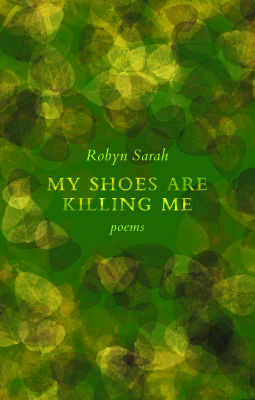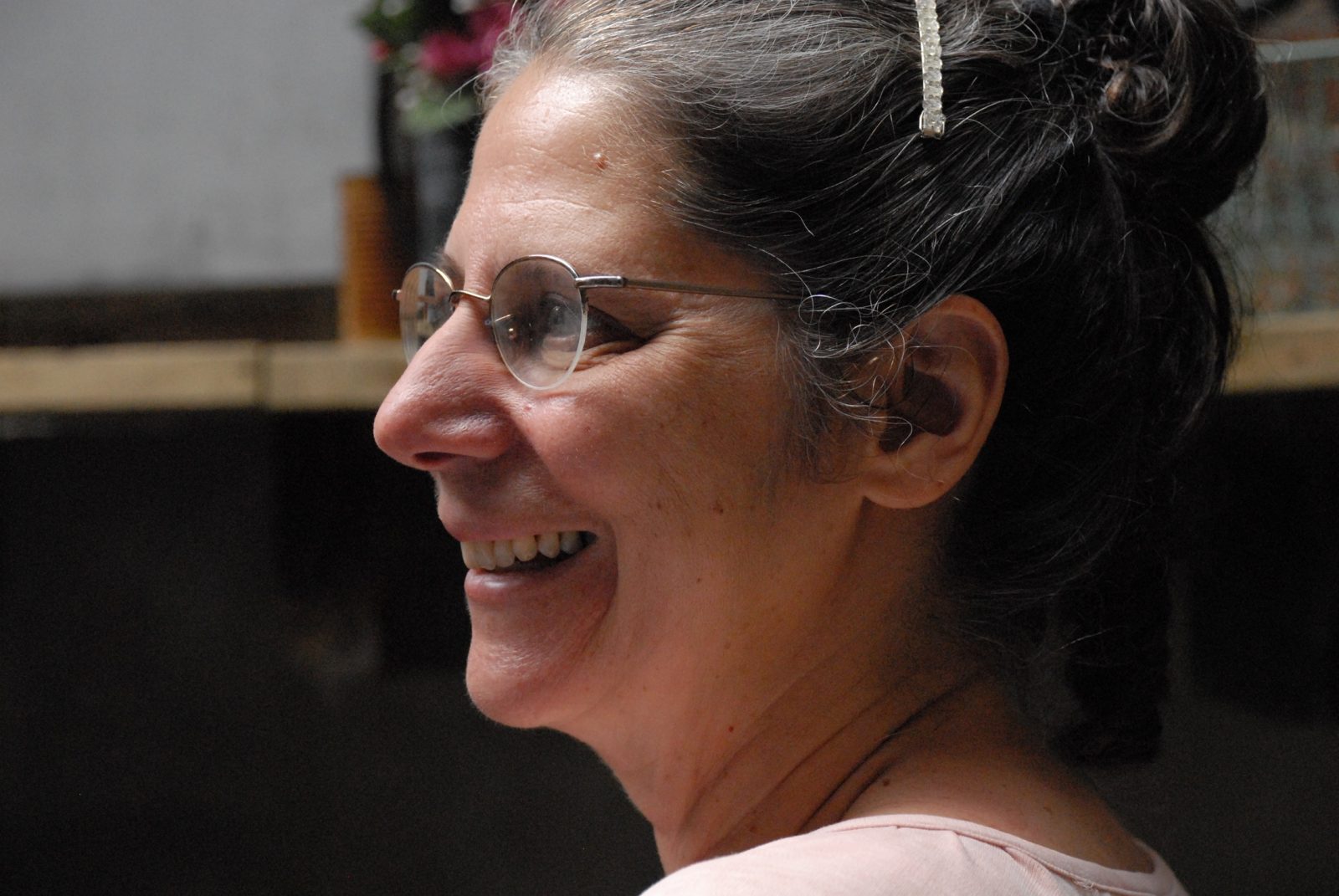Robyn Sarah’s poetry has always reckoned with the past, but her newest collection, My Shoes Are Killing Me, reflects from a particular juncture in life, one she defines succinctly as “the beginning of dwindle.” Sarah explores the time in middle life when what has happened takes on a larger presence than what remains to happen. In this collection, things are shrinking and diminishing, summers aren’t as endless, and even our smallest unit of currency has disappeared from circulation. The poems themselves slow down time when they pause in the ephemeral immediate moment, as when the speaker in “Keep Off the Grass” finds an antidote to the ache of the collection’s title: “Dew, cool my heels.”
“The present moment … has always interested me – the wish to occupy it fully, to write from inside of it,” Sarah writes in an interview over email. “When I do, an awareness of layers of time infuses it. This hasn’t changed. Perhaps in this collection, there are more remembered moments than immediate ones, but I occupy them in the same way: I re-experience them as immediate, yet as part of a continuum.”
Sarah, a Montrealer since childhood, the author of seven previous collections of poetry, and current poetry editor at Cormorant Books, has always worked with exact, everyday detail. This specificity makes her poems easy to enter. Scenes and memories are captured in ways that feel universal, an effect Sarah achieves with precise images: “Trees dipped overnight in mist / and sugared with a thin fur of frost”; “our jaundiced hopes / like flat champagne / in last night’s unwashed glasses”; “the afterglow, rose giving way / to mauve in the mild sky / a few stars like bubbles.”
“I’ve always had a very good memory – it has astonished my family ever since I was a child,” Sarah says. While she does keep journals, she says that her writing process “centres much more on a second set of dated notebooks that are really just scratch pads for discontinuous fragmentary scribblings: random thoughts and observations, descriptions of the view out the window, stray phrases or word combinations I like the sound of. That’s where the poems usually germinate.”

My Shoes Are Killing Me
Robyn Sarah
Biblioasis
$17.95
paper
72pp
978-1-77196-013-7
Why do certain images that might not appear initially significant stay with us, obsess us even? A hand held, the humid moment before rain falls, sun lighting the curve of a stair-rail. “I believe the details that catch our attention, or the moments that come back to us unbidden and insistently, do so because they are not insignificant. They have a metaphoric weight for us,” Sarah explains. “They signify, in a language that the unconscious knows, though the conscious mind may not. What haunts us is not the moment but the metaphor in the moment.”
In My Shoes Are Killing Me, these metaphors tend to come out of moments of transition, or of standing on the brink of change. Such moments might be overt, as when melancholy is displaced by a new season sweeping in “with glitter, with bustle, / like an auntie with a gold tooth” in “Fall Arrives.” More often, Sarah zeroes in on transitions that are more slippery and difficult to articulate, the subtlest and most private of epiphanies. In “Breach,”
a teenager walks through “a sort of ruin,” a break in a construction fence leading to an empty lot, and finds joy: “aloneness that felt like treasure. A sense / of having embarked on open waters / in the frailest of crafts.” Sarah excels at revealing metaphoric weight without explaining away mystery, at holding up those moments where nothing has changed, but everything has.
There are certain lines in this collection that read almost too plainly; some readers may resist the explicit emotion of an opener like “Poignancy of the discarded” in “Castoffs.” At the same time, there is a striking directness to these poems, an honesty and unwillingness to hide behind irony or veils. In addition, Sarah is highly attuned to sound and rhythm, but never in a conspicuous way. She studied at the Conservatoire de musique du Québec, and has returned to playing piano seriously in recent years. Repetition, variation, and other musical features show up in her verse, along with a sensitivity to pauses and silences. “There’s no question that my background in music has had a large impact on how I compose poetry, at both conscious and unconscious levels,” Sarah says. “I write with my ear, and the patterns and nuances of musical phrasing are part of my aural vocabulary.” One has only to read aloud lines like “rhythmic click of sidewalk cracks, / and giddy clicklessness / on blacktop, velvet bands of new-rolled tar” to feel and hear the payoff of this rigorous listening.
The reflections on the passing of time in My Shoes Are Killing Me are not only interior; the book also turns its eye outwards. Collective memory is a theme of “When We Were Slaves In Egypt,” which depicts Montreal’s Jewish diaspora and finding a sense of home. Sarah also addresses the future, mortality, and our aging planet, the disorientation of “more bad news on a beautiful day,” and “the forecast: hiatus, quietus. / Fear for the world. / Where’s north now?” There is a persistent questioning about what makes a good life, what we keep, what we pass on. There is anxiety for what slips away: “Why do I not know the names of more flowers? / Everything gone before I can write it down.” There is resignation to the notion of “too late”: “while things we didn’t do, and never will, / queue up on the wires like birds / and wing off, one by one.”
Ultimately, though, My Shoes Are Killing Me probes the world for moments of reprieve, solace, pleasure, beauty. Robyn Sarah does the work of searching out, amidst doubt and regret, “wisps of well being,” providing an answer to requests like these in a stanza from “An Infrequent Flyer Looks Down”: “Give me a talisman, a charm to keep. / Give me a pebble for my pocket, / something to palm in secret.” mRb







0 Comments